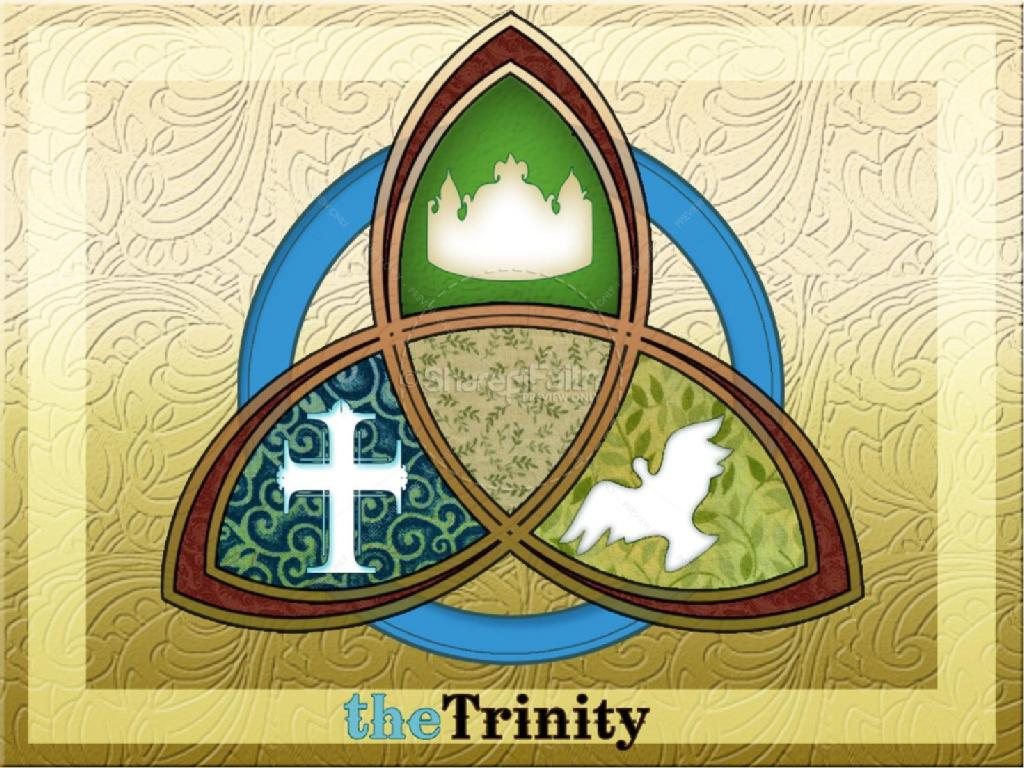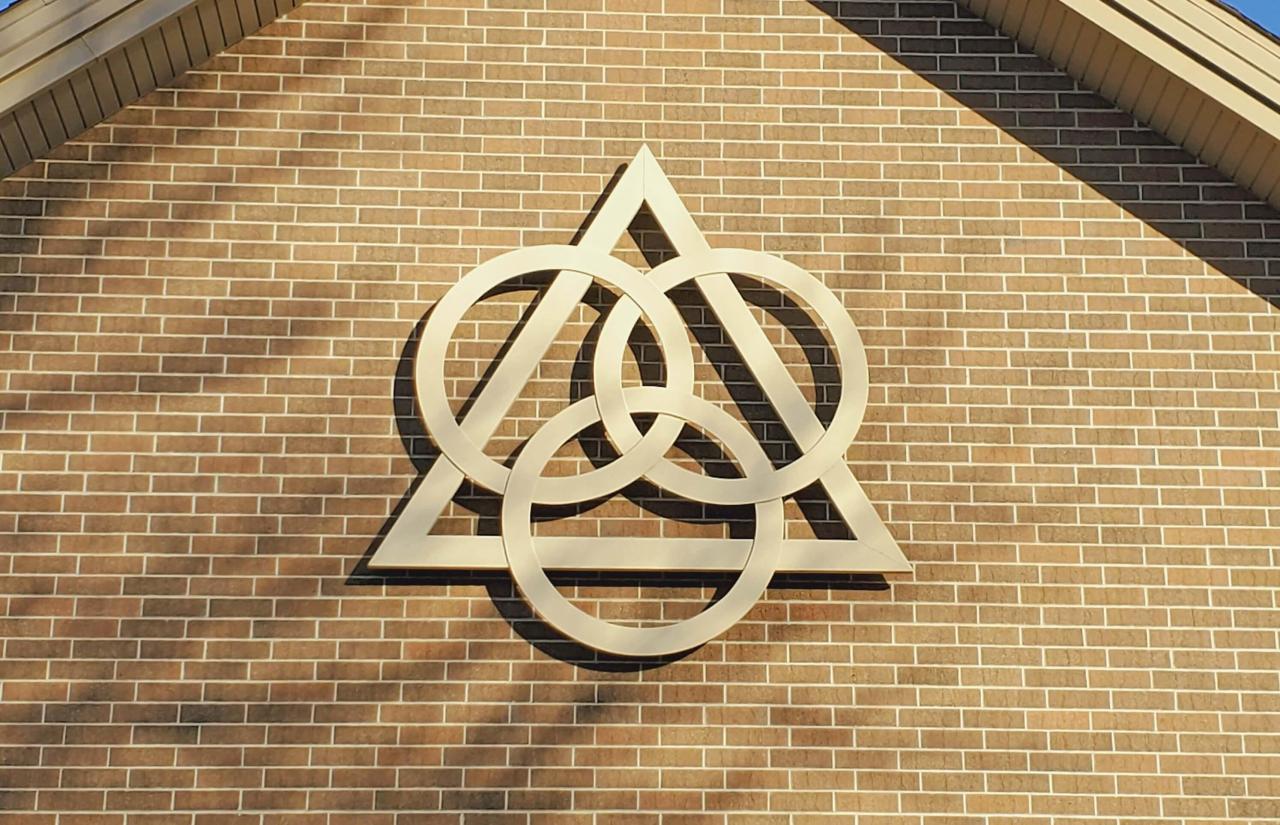Evidence of the Trinity in the Hebrew Scriptures

Table of Contents
I was recently in some discussions/debates online about the nature of God and whether the "Trinity" exists, or if God is purely singular and exists in different forms rather than different persons.
This idea that God has different "forms" or "modes" is what is known as Modalism (also sometimes called Sabellianism). This doctrine was condemned as heresy by Tertullian around 213 AD, and later by the bishop of Rome around 262 AD. A more modern sect of Christians, often called "Oneness Pentecostals", still hold to this heretical doctrine today.
Now, to be clear: I do believe in the Trinity and accept that it is the orthodox position to hold. But that doesn't mean I've always fully grasped the concept. This is something Christians have struggled to define for centuries, hence the sometimes confusing and lengthy language of the creeds (see here, here, here and here for example).
So after reading this debate online with some Oneness believers, I decided to look more into the Trinity to try and get my head around it as much as possible.
On my searching and reading, I came across an article by Arnold Fruchtenbaum on the Jews for Jesus website. He had taken the time to really look into the Tri-unity of God from a Jewish/Hebrew perspective to bring some clarity to the issue.
I found the article to be very helpful for my own understanding, and very illuminating to see the plurality of God in oneness hidden within the Hebrew language, something that is often lost in translation to our English bibles.
I'm no Hebrew scholar, so rather than try (and probably fail) to explain the language nuances to you, I sought permission to post a copy of the original article here. I hope that the information provided is as helpful to you as it was for me.
The original article begins below. Let me know your thoughts in the comments!
Jewishness and the Trinity
In a recent question-and-answer article, Rabbi Stanley Greenberg of Temple Sinai in Philadelphia wrote:
Christians are, of course, entitled to believe in a trinitarian conception of God, but their effort to base this conception on the Hebrew Bible must fly in the face of the overwhelming story of that Bible. Hebrew Scriptures are clear and unequivocal on the oneness of God . . . The Hebrew Bible affirms the one God with unmistakable clarity. Monotheism, an uncompromising belief in one God, is the hallmark of the Hebrew Bible, the unwavering affirmation of Judaism and the unshakable faith of the Jew.”
Whether Christians are accused of being polytheists or tritheists or whether it is admitted that the Christian concept of the Tri-unity is a form of monotheism, one element always appears: one cannot believe in the Trinity and be Jewish. Even if what Christians believe is monotheistic, it still does not seem to be monotheistic enough to qualify as true Jewishness. Rabbi Greenberg’s article tends to reflect that thinking.
He went on to say, “…under no circumstances can a concept of a plurality of the Godhead or a trinity of the Godhead ever be based upon the Hebrew Bible.” It is perhaps best then to begin with the very source of Jewish theology and the only means of testing it: the Hebrew Scriptures. Since so much relies on Hebrew language usage, then to the Hebrew we should turn.
1. God Is A Plurality
The Name Elohim
It is generally agreed that Elohim is a plural noun having the masculine plural ending “im.” The very word Elohim used of the true God in Genesis 1:1, “In the beginning God created the heavens and the earth,” is also used in Exodus 20:3, “You shall have no other gods (Elohim) before Me,” and in Deuteronomy 13:2, “…Iet us go after other gods (Elohim)…” While the use of the plural Elohim does not prove a Tri-unity, it certainly opens the door to a doctrine of plurality in the Godhead since it is the word that is used of the one true God as well as for the many false gods.
Plural Verbs used with Elohim
Virtually all Hebrew scholars do recognize that the word Elohim, as it stands by itself, is a plural noun. Nevertheless, they wish to deny that it allows for any plurality in the Godhead whatsoever. Their line of reasoning usually goes like this: When “Elohim” is used of the true God, it is followed by a singular verb; when it is used of false gods, it is followed by the plural verb. Rabbi Greenberg states it as follows:
“But, in fact, the verb used in the opening verse of Genesis is ‘bara’ which means ‘he created’—singular. One need not be too profound a student of Hebrew to understand that the opening verse of Genesis clearly speaks of a singular God.”
The point made, of course, is generally true because the Bible does teach that God is only one God and, therefore, the general pattern is to have the plural noun followed by the singular verb when it speaks of the one true God. However, there are places where the word is used of the true God and yet it is followed by a plural verb:
Genesis 20:13: “And it came to pass, when God (Elohim) caused me to wander [literally: They caused me to wander] from my father’s house…Genesis 35:7: “…because there God (Elohim) appeared unto him…” [Literally: They appeared unto him.]
2 Samuel 7:23: “…God (Elohim) went…” [Literally: They went.]
Psalm 58:12: “Surely He is God (Elohim) who judges…[Literally: They judge.]
The Name Eloah
If the plural form Elohim was the only form available for a reference to God, then conceivably the argument might be made that the writers of the Hebrew Scriptures had no other alternative but to use the word Elohim for both the one true God and the many false gods. However, the singular form for Elohim (Eloah) exists and is used in such passages as Deuteronomy 32:15-17 and Habakkuk 3:3. This singular form could have easily been used consistently. Yet it is only used 250 times, while the plural form is used 2,500 times. The far greater use of the plural form again turns the argument in favor of plurality in the Godhead rather than against it.
Plural Pronouns
Another case in point regarding Hebrew grammar is that often when God speaks of himself, he clearly uses the plural pronoun:
Genesis 1:26: Then God (Elohim) said,”Let Us make man in Our image, according to Our likeness.…”
He could hardly have made reference to angels since man was created in the image of God and not of angels. The Midrash Rabbah on Genesis recognizes the strength of this passage end comments as follows:
“Rabbi Samuel Bar Hanman in the name of Rabbi Jonathan said, that at the time when Moses wrote the Torah, writing a portion of it daily, when he came to this verse which says, “And Elohim said, let us make man in our image after our likeness,” Moses said, “Master of the universe, why do you give herewith an excuse to the sectarians (who believe in the Tri-unity of God).” God answered Moses, “You write and whoever wants to err, let him err.”1
It is obvious that the Midrash Rabbah is trying to simply get around the problem and fails to answer adequately why God refers to Himself in the plural.
The use of the plural pronoun can also be seen in:
Genesis 3:22: Then the LORD God (YHVH Elohim) said, “Behold, the man has become like one of Us…”Genesis 11:7: “Come, let Us go down, and there confuse their language…”
Isaiah 6:8: Also I heard the voice of the Lord, saying, “Whom shall I send, and who will go for Us?”
This last passage would appear contradictory with the singular “I” and the plural “us” except as viewed as a plurality (us) in a unity (I).
Plural Descriptions of God
One point that also comes out of Hebrew is the fact that often nouns and adjectives used in speaking of God are plural. Some examples are as follows:
Ecclesiastes 12:1: “Remember now you creator…” [Literally: creators.]
Psalm 149:2: “Let Israel rejoice in their Maker.” [Literally: makers.]
Joshua 24:19: “…holy God…” [Literally: holy Gods.]
Isaiah 54:5: “For your Maker is your husband…” [Literally: makers, husbands.]
Everything we have said so far rests firmly on the Hebrew language of the Scriptures. If we are to base our theology on the Scriptures alone, we have to say that on the one hand they affirm God’s unity, while at the same time they tend towards the concept of a compound unity allowing for a plurality in the Godhead.
The Shema
Deuteronomy 6:4: Hear, O Israel: The LORD our God, the LORD is one!
Deuteronomy 6:4, known as the Shema, has always been Israel’s great confession. It is this verse more than any other that is used to affirm the fact that God is one and is often used to contradict the concept of plurality in the Godhead. But is it a valid use of this verse?
On one hand, it should be noted that the very words “our God” are in the plural in the Hebrew text and literally mean “our Gods.” However, the main argument lies in the word “one,” which is a Hebrew word, echad. A glance through the Hebrew text where the word is used elsewhere can quickly show that the word echad does not mean an absolute “one” but a compound “one.” For instance, in Genesis 1:5, the combination of evening and morning comprise one (echad) day. In Genesis 2:24, a man and a woman come together in marriage and the two “shall become one (echad) flesh.” In Ezra 2:64, we are told that the whole assembly was as one (echad), though of course, it was composed of numerous people. Ezekiel 37:17 provides a rather striking example where two sticks are combined to become one (echad). The use of the word echad in Scripture shows it to be a compound and not an absolute unity.
There is a Hebrew word that does mean an absolute unity and that is yachid, which is found in many Scripture passages,2 the emphasis being on the meaning of “only.” If Moses intended to teach God’s absolute oneness as over against a compound unity, this would have been a far more appropriate word. In fact, Maimonides noted the strength of “yachid” and chose to use that word in his “Thirteen Articles of Faith” in place of echad. However, Deuteronomy 6:4 (the Shema) does not use “yachid” in reference to God.
II. God Is At Least Two
Elohim and YHVH Applied to Two Personalities
As if to even make the case for plurality stronger, there are situations in the Hebrew Scriptures where the term Elohim is applied to two personalities in the same verse. One example is Psalm 45:7-8:
“Your throne, O God, is forever and ever;
A scepter of righteousness is the scepter of Your kingdom.
You love righteousness and hate wickedness;
Therefore God, Your God, has anointed You
With the oil of gladness more than Your companions.”
It should be noted that the first Elohim is being addressed and the second Elohim is the God of the first Elohim. And so God’s God has anointed Him with the oil of gladness.
A second example is Hosea 1:7:
“Yet I will have mercy on the house of Judah, will save them by the LORD their God, and will not save them by bow, nor by sword or battle, by horses or horsemen.”
The speaker is Elohim who says He will have mercy on the house of Judah and will save them by the instrumentality of YHVH, their Elohim. So Elohim number one will save Israel by means of Elohim number two.
Not only is Elohim applied to two personalities in the same verse, but so is the very name of God. One example is Genesis 19:24which reads:
“Then the LORD rained brimstone and fire on Sodom and Gomorrah, from the LORD out of the heavens.”
Clearly we have YHVH number one raining fire and brimstone from a second YHVH who is in heaven, the first one being on earth.
A second example is Zechariah 2:8-9:
For thus says the LORD of Hosts: “He sent Me after glory, to the nations which plunder you; for he that touches you touches the apple of His eye. For surely I will shake My hand against them, and they shall become spoil for their servants. Then you will know that the LORD of hosts has sent Me.”
Again, we have one YHVH sending another YHVH to perform a specific task.
The author of the Zohar sensed plurality in the Tetragrammaton3 and wrote:
“Come and see the mystery of the word YHVH: there are three steps, each existing by itself: nevertheless they are One, and so united that one cannot be separated from the other. The Ancient Holy One is revealed with three heads, which are united into one, and that head is three exalted. The Ancient One is described as being three: because the other lights emanating from him are included in the three. But how can three names be one? Are they really one because we call them one? How three can be one can only be known through the revelation of the Holy Spirit.”4
III. God Is Three
How Many Persons Are There?
If the Hebrew Scriptures truly do point to plurality, the question arises, how many personalities in the Godhead exist? We have already seen the names of God applied to at least two different personalities. Going through the Hebrew Scriptures, we find that, in fact, three and only three distinct personalities are ever considered divine.
1. First, there are the numerous times when there is a reference to the Lord YHVH. This usage is so frequent that there is no need to devote space to it.
2. A second personality is referred to as the Angel of YHVH. This individual is always considered distinct from all other angels and is unique. In almost every passage where He is found He is referred to as both the Angel of YHVH and YHVH Himself. For instance, in Genesis 16:7 He is referred to as the Angel of YHVH, but then in 16:13 as YHVH Himself. In Genesis 22:11 He is the Angel of YHVH, but God Himself in 22:12. Other examples could be given.5 A very interesting passage is Exodus 23:20-23 where this angel has the power to pardon sin because God’s own name YHVH is in him, and, therefore, he is to be obeyed without question. This can hardly be said of any ordinary angel. But the very fact that God’s own name is in this angel shows His divine status.
3. A third major personality that comes through is the Spirit of God, often referred to as simply the Ruach Ha-kodesh. There are a good number of references to the Spirit of God among which are Genesis 1:2, 6:3; Job 33:4; Psalm 51:11; Psalm 139:7; Isaiah 11:2, etc. The Holy Spirit cannot be a mere emanation because He contains all the characteristics of personality (intellect, emotion and will) and is considered divine.
So then, from various sections of the Hebrew Scriptures there is a clear showing that three personalities are referred to as divine and as being God: the Lord YHVH, the Angel of YHVH and the Spirit of God.
The Three Personalities in the Same Passage
Nor have the Hebrew Scriptures neglected to put all three personalities of the Godhead together in one passage. Two examples are Isaiah 48:12-16 and 63:7-14.
Because of the significance of the first passage, it will be quoted:
“Listen to Me, O Jacob, and Israel, My called: I am He, I am the First, I am also the Last. Indeed My hand also has laid the foundation of the earth, and My right hand has stretched out the heavens; when I call to them, they stand up together. All of you, assemble yourselves, and hear! Who among them has declared these things? The LORD has loved him; he shall do His pleasure on Babylon, and His arm shall be against the Chaldeans. I, even I, have spoken; yes, I have called him, I have brought him, and his way will prosper. Come near to Me, hear this: I have not spoken in secret from the beginning; from the time that it was, I was there. And now the Lord GOD and His Spirit have sent me.”
It should be noted that the speaker refers to himself as the one who is responsible for the creation of the heavens and the earth. It is clear that he cannot be speaking of anyone other than God. But then in verse 16, the speaker refers to himself using the pronouns of I and me and then distinguishes himself from two other personalities. He distinguishes himself from the Lord YHVH and then from the Spirit of God. Here is the Tri-unity as clearly defined as the Hebrew Scriptures make it.
In the second passage, there is a reflection back to the time of the Exodus where all three personalities were present and active. The Lord YHVH is referred to in verse 7, the Angel of YHVH in verse 9 and the Spirit of God in verses 10, 11 and 14. While often throughout the Hebrew Scriptures God refers to Himself as being the one solely responsible for Israel’s redemption from Egypt, in this passage three personalities are given credit for it. Yet, no contradiction is seen since all three comprise the unity of the one Godhead.
Conclusion
The teaching of the Hebrew Scriptures, then, is that there is a plurality of the Godhead. The first person is consistently called YHVH while the second person is given the names of YHVH, the Angel of YHVH and the Servant of YHVH. Consistently and without fail, the second person is sent by the first person. The third person is referred to as the Spirit of YHVH or the Spirit of God or the Holy Spirit. He, too, is sent by the first person but is continually related to the ministry of the second person.
If the concept of the Tri-unity in the Godhead is not Jewish according to modern rabbis, then neither are the Hebrew Scriptures. Jewish Christians cannot be accused of having slipped into paganism when they hold to the fact that Jesus is the divine Son of God. He is the same one of whom Moses wrote when he said:
“Behold, I send an Angel before you, to keep you in the way, and to bring you into the place which I have prepared. Beware of Him and obey His voice; do not provoke Him, for He will not pardon your transgressions; for My name is in Him. But if you indeed obey His voice and do all that I speak, then I will be an enemy to your enemies and an adversary to your adversaries. For My Angel will go before you and bring you in to the Amorites and the Hittites and the Perizzites and the Canaanites and the Hivites and the Jebusites; and I will cut them off.”
—Exodus 23:20-23
New Testament Light
In keeping with the teachings of the Hebrew Scriptures, the New Testament clearly recognizes that there are three persons in the Godhead, although it becomes quite a bit more specific. The first person is called the Father while the second person is called the Son. The New Testament answers the question of Proverbs 30:4: “…What is His name, and what is his Son’s name, if you know?” His son’s name is Yeshua (Jesus). In accordance with the Hebrew Scriptures, he is sent by God to be the Messiah, but this time as a man instead of as an angel. Furthermore, He is sent for a specific purpose: to die for our sins. In essence, what happened is that God became a man (not that man became God) in order to accomplish the work of atonement.
The New Testament calls the third person of the Godhead the Holy Spirit. Throughout the New Testament he is related to the work of the second person, in keeping with the teaching of the Hebrew Scriptures. We see, then, that there is a continuous body of teaching in both the Old and New Testaments relating to the Tri-unity of God.
Footnotes
- Midrash Rabbah on Genesis 1:26, New York: NOP Press, N.D.
- Genesis 22:2,12; Judges 11:34; Psalm 22:21; 25:16; Proverbs 4:3; Jeremiah 6:26; Amos 8:10; Zechariah 12:10
- ″Personal Name of God of Israel,” written in Hebrew Bible with the four consonants YHWH. Pronunciation of name has been avoided since at least 3rd c. B.C.E.; initial substitute was “Adonai” (“the Lord”), itself later replaced by “ha-Shem” (“the Name”). The name Jehovah is a hybrid misreading of the original Hebrew letters with the vowels of “Adonai.”—Encyclopedic Dictionary of Judaica, p. 593
- Zohar, vol. III, 288, vol. II, 43, Hebrew editions. See also Soncino Press edition, vol. III, 134.
- In Genesis 31 he is the Angel of God in verse 11, but then he is the God of Bethel in verse 13. In Exodus 3 he is the Angel of YHVH in verse 2 and he is both YHVH and God in verse 4. In Judges 6 he is the Angel of YHVH in verses 11, 12, 20, and 21 but is YHVH himself in verses 14, 16, 22 and 23. Then in Judges 13:3 and 21 he is the Angel of YHVH but is referred to as God himself in verse 22.
Leave a comment Like Back to Top Seen 15.7K times Liked 3 times
Enjoying this content?
Support my work by becoming a patron on Patreon!
By joining, you help fund the time, research, and effort that goes into creating this content — and you’ll also get access to exclusive perks and updates.
Even a small amount per month makes a real difference. Thank you for your support!
Subscribe to Updates
If you enjoyed this, why not subscribe to free email updates and join over 864 subscribers today!
My new book is out now! Order today wherever you get books
Recent Posts
Luke J. Wilson | 19th August 2025 | Fact-Checking
A poetic post has been circulating widely on Facebook, suggesting that our anatomy mirrors various aspects of Scripture. On the surface it sounds inspiring, but when we take time to weigh its claims, two main problems emerge. The viral post circulating on Facebook [Source] First, some of its imagery unintentionally undermines the pre-existence of Christ, as if Jesus only “held the earth together” for the 33 years of His earthly life. Second, it risks reducing the resurrection to something like biological regeneration, as if Jesus simply restarted after three days, instead of being raised in the miraculous power of God. Alongside these theological dangers, many of the scientific claims are overstated or symbolic rather than factual. Let’s go through them one by one. 1. “Jesus died at 33. The human spine has 33 vertebrae. The same structure that holds us up is the same number of years He held this Earth.” The human spine does generally have 33 vertebrae, but that number includes fused bones (the sacrum and coccyx), and not everyone has the same count. Some people have 32 or 34. More importantly, the Bible never says Jesus was exactly 33 when He died — Luke tells us He began His ministry at “about thirty” (Luke 3:23), and we know His public ministry lasted a few years, but His precise age at death is a tradition, not a biblical statement. See my other recent article examining the age of Jesus here. Theologically, the phrase “the same number of years He held this Earth” is problematic. Jesus did not hold the world together only for 33 years. The eternal Word was with God in the beginning (John 1:1–3), and “in Him all things hold together” (Colossians 1:17). Hebrews says He “sustains all things by His powerful word” (Hebrews 1:3). He has always upheld creation, before His incarnation, during His earthly ministry, and after His resurrection. To imply otherwise is to risk undermining the pre-existence of Christ. 2. “We have 12 ribs on each side. 12 disciples. 12 tribes of Israel. God built His design into our bones.” Most people do have 12 pairs of ribs, though some are born with an extra rib, or fewer. The number 12 is certainly biblical: the 12 tribes of Israel (Genesis 49), the 12 apostles (Matthew 10:1–4), and the 12 gates and foundations of the New Jerusalem (Revelation 21). But there’s no biblical connection between rib count and these symbolic twelves. This is a case of poetic association, not design woven into our bones. The only real mention of ribs in Scripture is when Eve is created from one of Adam’s ribs in Genesis 2:21–22, which has often led to the teaching in some churches that men have one less rib than women (contradicting this new claim)! 3. “The vagus nerve runs from your brain to your heart and gut. It calms storms inside the body. It looks just like a cross.” The vagus nerve is real and remarkable. It regulates heart rate, digestion, and helps calm stress, and doctors are even using vagus nerve stimulation as therapy for epilepsy, depression, and inflammation showing it really does “calm storms” in the body. But it does not look like a cross anatomically. The language about “calming storms” may echo the way Jesus calmed the storm on the Sea of Galilee (Mark 4:39), but here again the poetic flourish stretches science (and Scripture) beyond what’s accurate. 4. “Jesus rose on the third day. Science tells us that when you fast for 3 days, your body starts regenerating. Old cells die. New ones are born. Healing begins. Your body literally resurrects itself.” There’s a serious theological problem here. To equate Jesus’ resurrection with a biological “regeneration” after fasting is to misrepresent what actually happened. Fasting can indeed trigger cell renewal and immune repair, but it cannot bring the dead back to life. It’s still a natural process that happens...
Luke J. Wilson | 08th July 2025 | Islam
“We all worship the same God”. Table of Contents 1) Where YHWH and Allah Appear Similar 2) Where Allah’s Character Contradicts YHWH’s Goodness 3) Where Their Revelations Directly Contradict Each Other 4) YHWH’s Love for the Nations vs. Allah’s Commands to Subjugate 5) Can God Be Seen? What the Bible and Qur’an Say 6) Salvation by Grace vs. Salvation by Works Conclusion: Same God? Or Different Revelations? You’ve heard it from politicians, celebrities, and even some pastors. It’s become something of a modern mantra, trying to shoehorn acceptance of other beliefs and blend all religions into one, especially the Abrahamic ones. But what if the Bible and Qur’an tell different stories? Let’s see what their own words reveal so you can judge for yourself. This Tweet recently caused a stir on social media 1) Where YHWH and Allah Appear Similar Many point out that Jews, Christians, and Muslims share a belief in one eternal Creator God. That’s true — up to a point. Both the Bible and Qur’an describe God as powerful, all-knowing, merciful, and more. Here’s a list comparing some of the common shared attributes between YHWH and Allah, with direct citations from both Scriptures: 26 Shared Attributes of YHWH and Allah According to the Bible (NRSV) and the Qur’an Eternal YHWH: “From everlasting to everlasting you are God.” — Psalm 90:2 Allah: “He is the First and the Last…” — Surah 57:3 Creator YHWH: “In the beginning God created the heavens and the earth.” — Genesis 1:1 Allah: “The Originator of the heavens and the earth…” — Surah 2:117 Omnipotent (All-Powerful) YHWH: “Nothing is too hard for you.” — Jeremiah 32:17 Allah: “Allah is over all things competent.” — Surah 2:20 Omniscient (All-Knowing) YHWH: “Even before a word is on my tongue, O LORD, you know it.” — Psalm 139:4 Allah: “He knows what is on the land and in the sea…” — Surah 6:59 Omnipresent (Present Everywhere) YHWH: “Where can I go from your Spirit?” — Psalm 139:7–10 Allah: “He is with you wherever you are.” — Surah 57:4 Holy YHWH: “Holy, holy, holy is the LORD of hosts.” — Isaiah 6:3 Allah: “The Holy One (Al-Quddus).” — Surah 59:23 Just YHWH: “A God of faithfulness and without injustice.” — Deuteronomy 32:4 Allah: “Is not Allah the most just of judges?” — Surah 95:8 Merciful YHWH: “The LORD, merciful and gracious…” — Exodus 34:6 Allah: “The Most Gracious, the Most Merciful.” — Surah 1:1 Compassionate YHWH: “As a father has compassion on his children…” — Psalm 103:13 Allah: “He is the Forgiving, the Affectionate.” — Surah 85:14 Faithful YHWH: “Great is your faithfulness.” — Lamentations 3:22–23 Allah: “Indeed, the promise of Allah is truth.” — Surah 30:60 Unchanging YHWH: “For I the LORD do not change.” — Malachi 3:6 Allah: “None can change His words.” — Surah 6:115 Sovereign YHWH: “The LORD has established his throne in the heavens…” — Psalm 103:19 Allah: “Blessed is He in whose hand is dominion…” — Surah 67:1 Loving YHWH: “God is love.” — 1 John 4:8 Allah: “Indeed, my Lord is Merciful and Affectionate (Al-Wadud).” — Surah 11:90 Forgiving YHWH: “I will not remember your sins.” — Isaiah 43:25 Allah: “Allah forgives all sins…” — Surah 39:53 Wrathful toward evil YHWH: “The LORD is a jealous and avenging God…” — Nahum 1:2 Allah: “For them is a severe punishment.” — Surah 3:4 One/Unique YHWH: “The LORD is one.” — Deuteronomy 6:4 Allah: “Say: He is Allah, One.” — Surah 112:1 Jealous of worship YHWH: “I the LORD your God am a jealous God.” �...
Luke J. Wilson | 05th June 2025 | Blogging
As we commemorated the 500th anniversary of the Protestant Reformation this year, the familiar image of Martin Luther striding up to the church door in Wittenberg — hammer in hand and fire in his eyes — has once again taken centre stage. It’s a compelling picture, etched into the imagination of many. But as is often the case with historical legends, closer scrutiny tells a far more nuanced and thought-provoking story. The Myth of the Door: Was the Hammer Ever Raised? Cambridge Reformation scholar Richard Rex is one among several historians who have challenged the romanticised narrative. “Strangely,” he observes, “there’s almost no solid evidence that Luther actually went and nailed them to the church door that day, and ample reasons to doubt that he did.” Indeed, the first image of Luther hammering up his 95 Theses doesn’t appear until 1697 — over 180 years after the fact. Eric Metaxas, in his recent biography of Luther, echoes Rex’s scepticism. The earliest confirmed action we can confidently attribute to Luther on 31 October 1517 is not an act of public defiance, but the posting of two private letters to bishops. The famous hammer-blow may never have sounded at all. Conflicting Accounts Philip Melanchthon, Luther’s successor and first biographer, adds another layer of complexity. He claimed Luther “publicly affixed” the Theses to the door of All Saints’ Church, but Melanchthon wasn’t even in Wittenberg at the time. Moreover, Luther himself never mentioned posting the Theses publicly, even when recalling the events years later. Instead, he consistently spoke of writing to the bishops, hoping the matter could be addressed internally. At the time, it was common practice for a university disputation to be announced by posting theses on church doors using printed placards. But no Wittenberg-printed copies of the 95 Theses survive. And while university statutes did require notices to be posted on all church doors in the city, Melanchthon refers only to the Castle Church. It’s plausible Luther may have posted the Theses later, perhaps in mid-November — but even that remains uncertain. What we do know is that the Theses were quickly circulated among Wittenberg’s academic elite and, from there, spread throughout the Holy Roman Empire at a remarkable pace. The Real Spark: Ink, Not Iron If there was a true catalyst for the Reformation, it wasn’t a hammer but a printing press. Luther’s Latin theses were swiftly reproduced as pamphlets in Basel, Leipzig, and Nuremberg. Hundreds of copies were printed before the year’s end, and a German translation soon followed, though it may never have been formally published. Within two weeks, Luther’s arguments were being discussed across Germany. The machinery of mass communication — still in its relative infancy — played a pivotal role in what became a theological, political, and social upheaval. The Letters of a Conscientious Pastor Far from the bold revolutionary of popular imagination, Luther appears in 1517 as a pastor deeply troubled by the abuse of indulgences, writing with respectful concern to those in authority. In his letter to Archbishop Albrecht of Mainz, he humbly addresses the archbishop as “Most Illustrious Prince,” and refers to himself as “the dregs of humanity.” “I, the dregs of humanity, have so much boldness that I have dared to think of a letter to the height of your Sublimity,” he writes — hardly the voice of a man trying to pick a fight. From Whisper to Roar Luther’s initial appeal through formal channels was, predictably, ignored. He was advised not to make trouble. But as opposition mounted and corruption remained unchecked, the once quiet reformer grew louder. His theological convictions deepened, and his public persona evolved. The lion did eventually roar — but not on October 31. A Catholic Reformer, Not a Protestant Founder It’s vital to remem...
Luke J. Wilson | 20th May 2025 | Islam
You are not alone. Around the world, many Muslims — people who already believe in one God, pray, and seek to live righteously — are drawn to know more about Jesus (ʿĪsā in Arabic). Some have heard He is more than a prophet. Some have sensed His presence in a dream or vision. And some simply long to know God more deeply, personally, and truly. So what does it mean to become a Christian? And how can you take that step? This guide is for you. 1. What Christians Believe About God and Jesus ➤ One God, Eternal and Good Christians believe in one God — the same Creator known to Abraham, Moses, and the prophets. But we also believe God is more personal and relational than many realise. In His love, He has revealed Himself as Father, Son (Jesus), and Holy Spirit — not three gods, but one God in three persons. ➤ Jesus Is More Than a Prophet Muslims honour Jesus as a great prophet, born of the virgin Mary. Christians also affirm this — but go further. The Bible teaches that Jesus is the Word of God (Kalimat Allāh), who became flesh to live among us. He performed miracles, healed the sick, raised the dead — and lived without sin.Jesus came not just to teach but to save — to bring us back to God by bearing our sins and rising again in victory over death. 2. Why Do We Need Saving? ➤ The Problem: Sin All people — no matter their religion — struggle with sin. We lie, get angry, feel jealous, act selfishly, or fail to love God fully. The Bible says: “All have sinned and fall short of the glory of God.” (Romans 3:23) Sin separates us from God. And no matter how many good deeds we do, we can never make ourselves perfect or holy before Him. ➤ The Solution: Jesus Because God loves us, He did not leave us in our sin. He sent Jesus, His eternal Word, to live as one of us. Jesus died willingly, offering His life as a sacrifice for our sins, then rose again on the third day. “But God proves his love for us in that while we still were sinners Christ died for us.” (Romans 5:8) 3. How Do I Become a Christian? Becoming a Christian is not about joining a Western religion. It’s about entering a relationship with God through faith in Jesus Christ. Here is what the Bible says: ✝️ 1. Believe in Jesus Believe that Jesus is the Son of God, that He died for your sins, and that He rose again. “If you confess with your lips that Jesus is Lord and believe in your heart that God raised him from the dead, you will be saved.” (Romans 10:9) 💔 2. Repent of Your Sins Turn away from sin and ask God to forgive you. This is called repentance. It means being truly sorry and choosing a new way. “Repent therefore, and turn to God so that your sins may be wiped out.” (Acts 3:19) 💧 3. Be Baptised Jesus commands His followers to be baptised in water as a sign of their new life. Baptism represents washing away your old life and rising into a new one with Jesus. “Repent and be baptised every one of you in the name of Jesus Christ so that your sins may be forgiven.” (Acts 2:38) 🕊️ 4. Receive the Holy Spirit When you believe in Jesus, God gives you the Holy Spirit to live within you, guiding you, comforting you, and helping you follow His will. “You received the Spirit of adoption, by whom we cry, ‘Abba! Father!’” (Romans 8:15) 🧎 5. Begin a New Life As a Christian, you are born again — spiritually renewed. You begin to grow in faith, love, and holiness. You read the Bible, pray, fast, and gather with other believers. Your life is no longer your own; you now live for God. 4. What Does a Christian Life Look Like? Jesus said: “If anyone wants to become my followers, let them deny themselves and take up their cross and follow me.” (Matthew 16:24) This means: Loving God with all your heart Loving your neighbour — even your enemies Forgiving others ...










